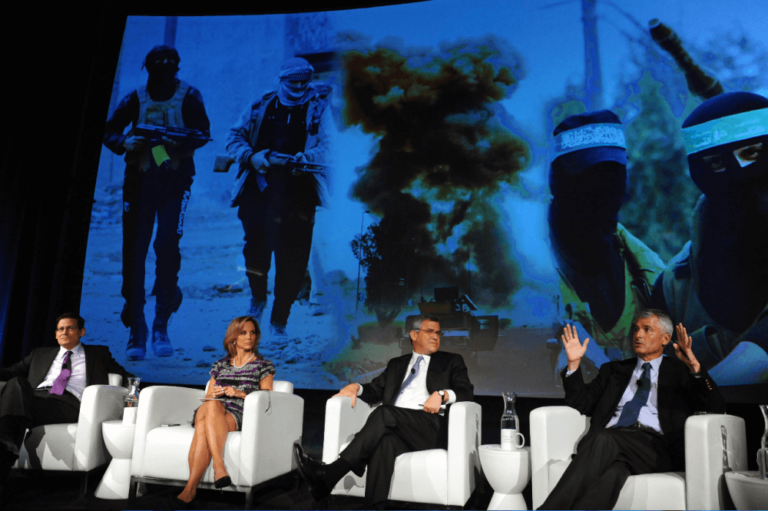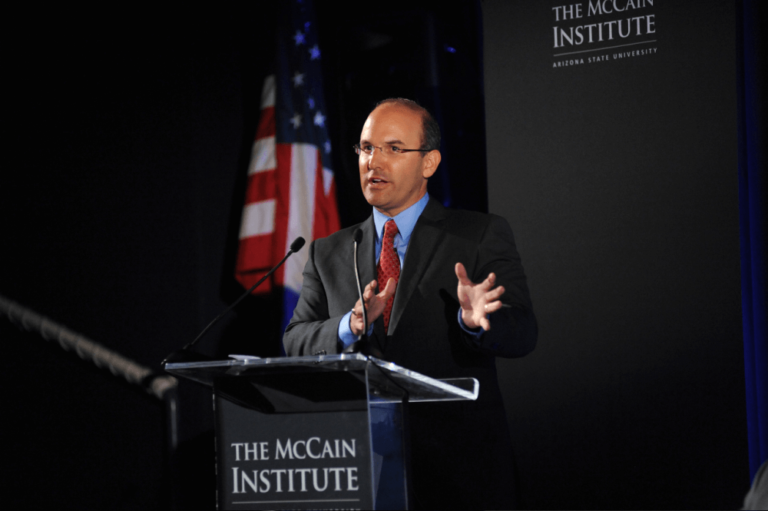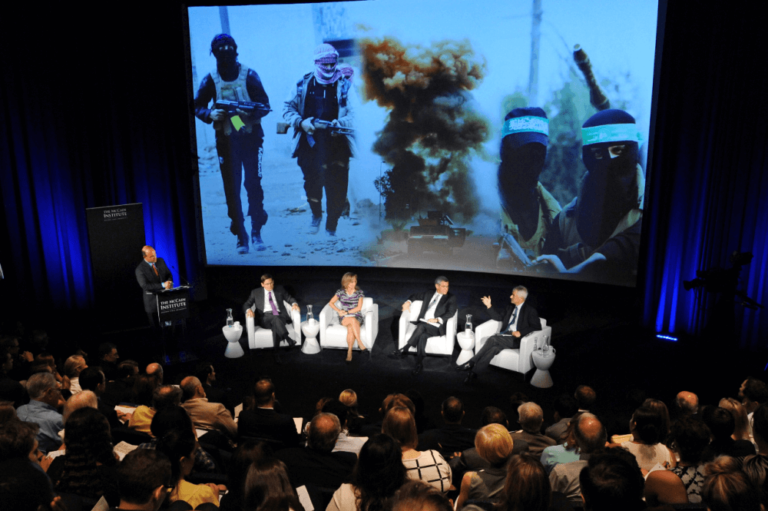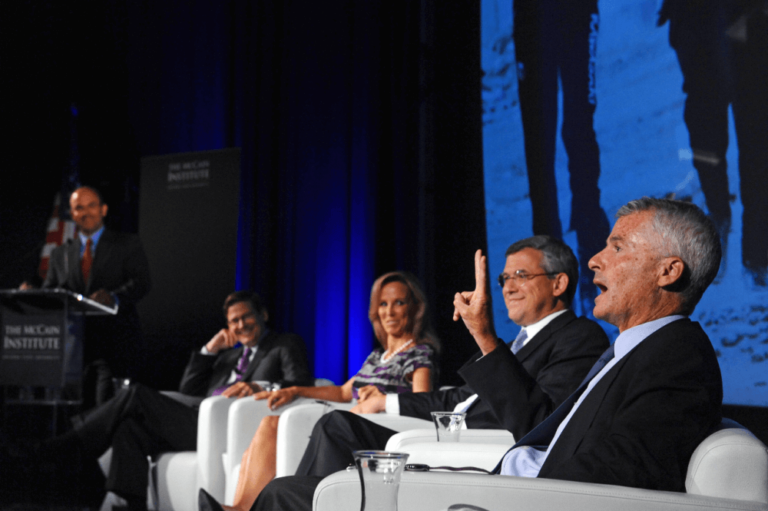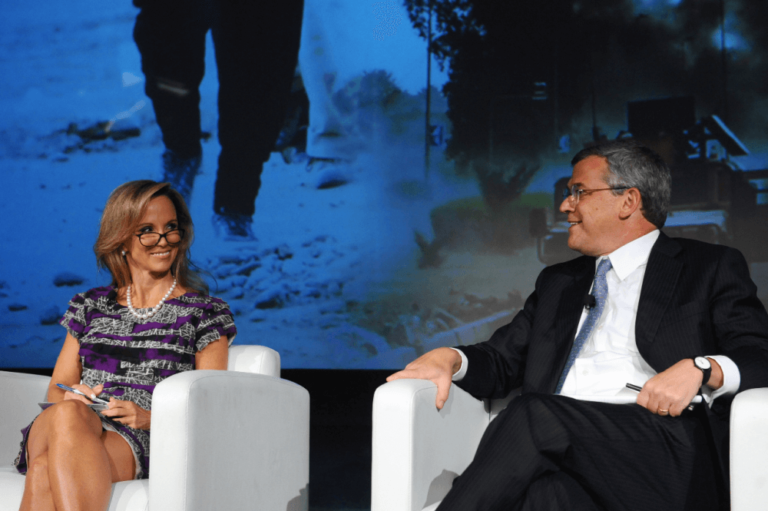Event Summary
THE DEBATE:
On Thursday, September 4, the McCain Institute for International Leadership hosted the debate: “The Global War on Terrorism: Is it Time to Double Down?” at the U.S. Navy Memorial Burke Theater in Washington, DC.
Keying off the recent gains by extremist groups in Iraq, Syria, and across Africa, the debate asked whether extreme Islamist terrorism is making a comeback – and whether the United States should “double down” to fight back.
THE TAKE AWAY:
Key Points Made In Support of “Doubling Down”:
- ISIS represents a brutal, sophisticated, and media-savvy terrorist group that constitutes a great challenge to U.S. interests in the region and a potential threat against the U.S. homeland.
- Failure to take on ISIS now means they will become a greater threat to deal with in the future – doing nothing is not a strategy.
- ISIS has declared its intent to attack America. We need to stop ISIS before they acquire the ability to attack successfully – not wait until they do.
- Drones are an effective way of targeting the leadership, especially in non-governed territories, but drone strikes need to be part of a broader strategy.
- Defeating ISIS requires a comprehensive all instruments of national power approach, including military, diplomatic, financial, and media tools.
Key Points Made Against “Doubling Down”:
- ISIS has not yet carried out a complex, international terrorist attack outside of its region, and does not now represent a threat against U.S. interests of the magnitude that al-Qaeda did on September 11, 2001.
- Thirteen years after 9/11, the U.S. has a record of success in reducing terrorist threats in numerous countries around the world and possesses the toolkit for dealing with ISIS.
- ISIS is focused principally on a regional sectarian fight against the Shia and in holding on to territory it has seized in Syria and Iraq. While it ultimately may choose to target the U.S., we should not make the mistake of thinking this conflict is “all about us,” and take ownership of the challenge.
- The U.S. must work energetically to bring together a coalition of regional states who should be at the forefront of the campaign against ISIS. The U.S. can support its efforts with intelligence, weaponry, and a drone campaign to eliminate the ISIS leadership. It is particularly vital that Iraq be incentivized to reform its military, overcome its internal divisions, and take the lead responsibility in fighting ISIS.
THE RECOMMENDATIONS
Fran Townsend: The United States should take a whole-of-government approach to eliminate ISIS – including by using special operations, sending military advisors and intelligence officials to both the Iraqi Army and the Free Syrian Army, and forming a coalition of regional states to effectively counter ISIS.
Mike Morell: The United States needs to build local capacity in frontline states, provide the resources necessary to do this, and encourage these states to put this capacity to use.
Daniel Benjamin: We should avoid “hyping the threat,” focus on creating the regional coalition to face ISIS, build this coalition’s capacity, and give it our support in terms of intelligence and carefully calibrated use of airpower.
Philip Mudd: The United States should continue what has worked successfully for years – pursue a targeted, tailored approach to disrupt and destroy terrorist groups country-by-country; there is no one-size “military solution.
THE DEBATERS
ARGUING IN FAVOR OF DOUBLING DOWN ON TERRORISM
Fran Townsend
former Assistant to the President for Homeland Security & Counterterrorism
Mike Morell
former Deputy Director, CIA Counterterrorist Center
ARGUING AGAINST DOUBLING DOWN ON TERRORISM
Daniel Benjamin
former Ambassador-at-Large, U.S. State Department
Philip Mudd
former Deputy Director, CIA Counterterrorist Center
MODERATOR
Juan Zarate
former Deputy National Security Advisor for Combating Terrorism
Video
